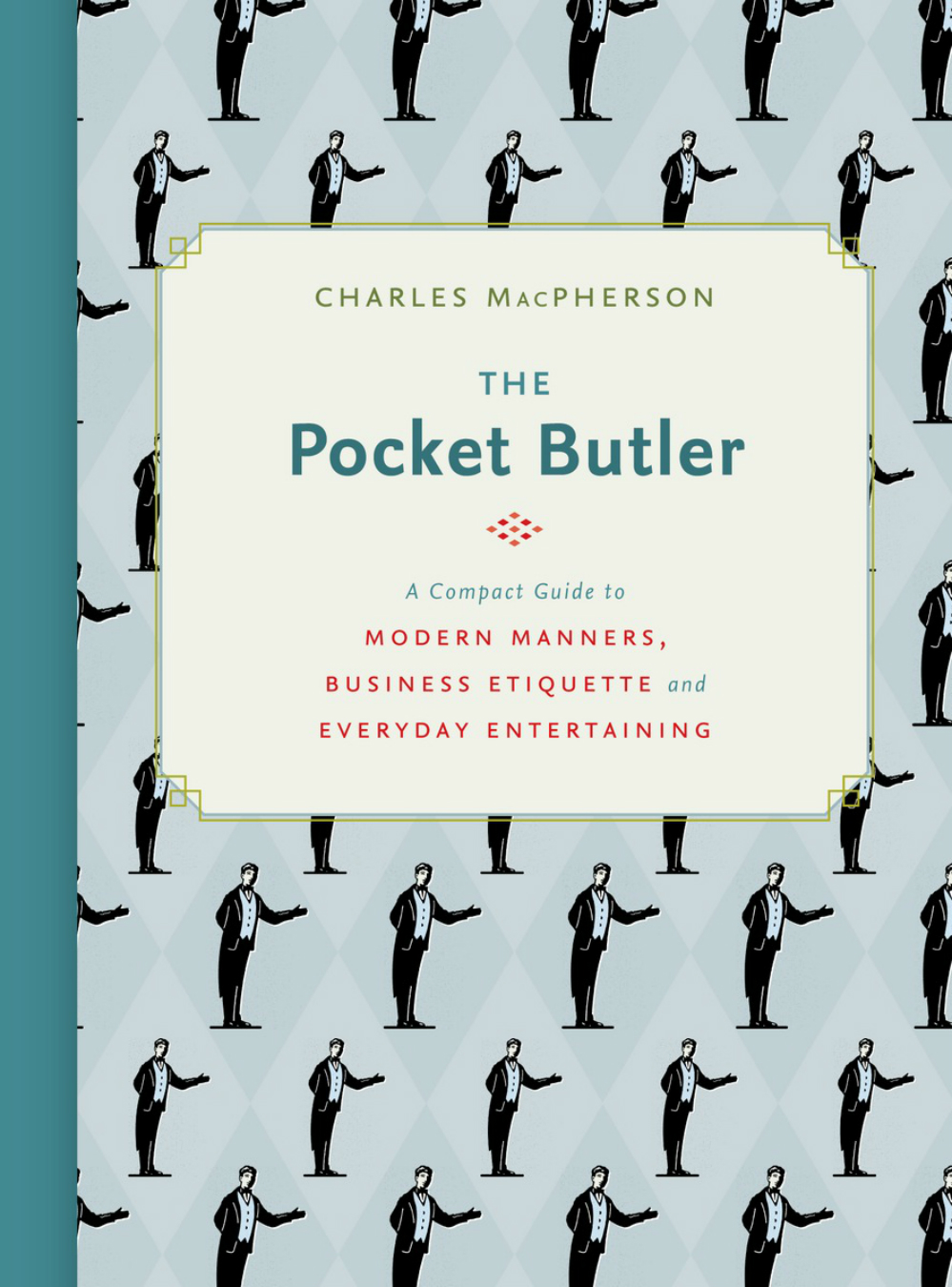It is clear from the first moment you meet Charles MacPherson that he carries himself well. And one should hope so. He is, after all, an expert on etiquette, household management, and organization. Having served as both a butler and a household manager to families and corporations around the globe for 24 years, MacPherson has made a career of good manners. His interest in etiquette began as a child when his peers, as well as the adults around him, praised him for his exceptional table manners (something MacPherson’s parents instilled in him at an early age), and he reveled in the positive attention that his behavior attracted. “I became a butler by mistake, or by accident, for a fabulous family and then it just became part of my life on a daily basis because of that role,” he explains. “But what was fascinating for me was that it was so easy—second nature. I felt comfortable doing it because I had done it all my life.”
In 2009 he opened the Charles MacPherson Academy as a way to pass along his experience, training eager household managers and butlers, underscoring the power of high standards to his pupils. A sought-after name in the hospitality industry, MacPherson wrote a reoccurring newspaper column for Metro News, dispensing advice on maintaining one’s home, and social protocol such as re-gifting. He regularly appears on television to help viewers decipher the ins and outs of decorum, business etiquette, and entertaining at home. MacPherson was recently in Vancouver at Inform Interiors to talk about his newly-released second book, The Pocket Butler, a follow up to the 2013 guide The Butler Speaks. “[My] readers are fascinated with entertaining and how to do it properly,” reveals MacPherson.
MacPherson sees The Pocket Butler as relevant to two different audiences: “It’s for the person who has just graduated and going into their first job—to start to know some skill sets to give them that advantage,” he explains. “It’s also for someone who has been in a job for a while who just needs a refresher.” And true to form, MacPherson feels that conducting oneself confidently and politely makes an individual seem more capable, which will underscore the on-paper qualifications of every professional. The Pocket Butler examines a range of interactions, from the best ways to exchange a business card—which varies depending on country and culture—or introduce two people, to more contemporary cultural interactions, including how to fist bump. To properly execute, MacPherson recommends gently touching the knuckles of closed fists together with minimal force.
The Pocket Butler also details successful entertaining strategy, from menu and party planning to assembling the best cheese board possible (make sure to prepare a second cheese board in advance so the first board can be removed and then replaced once demand has surpassed supply). There are two essential rules to be remembered: first, ensure that everyone has a drink in hand, and second, make sure that every guest has someone to talk to—guests should never be bored, uncomfortable, or thirsty.
MacPherson’s unfussy approach is a refreshing departure from the generations who have followed Emily Post to the word. MacPherson thinks of etiquette as “a living breathing document that has the ability to change, so as society changes, etiquette needs to be able to change with society. Etiquette is about making others feel comfortable.”
MacPherson is also quick to remind readers that there is a time and a place for everything, including manners, so flexibility and context is key. Although the formalities of etiquette and decorum can become overwhelming, the stalwart supporter of standards admits that he continues to learn new codes and conventions each day. His most essential tip? “Always be kind and gracious, even when others are not.”










